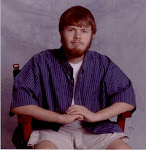Now on to the next topic - Countering the snake-oil sales for autism treatments with your own expertise.
How do you treat autism? There are so many treatments out there that it’s hard to tell which ones are snake oil and which ones may do some good. All the drugs have nasty side effects and they don’t treat autism – just symptoms. I personally can’t give Matt drugs. I worry they could make him ill in other areas and I just am not willing to risk his overall health on a “maybe”. I have looked at most of the treatments online and notice they all have a budget-killing price tag and most are preying on the fears and confusion of parents. The majority of these treatments have not been tested – making the autistic child a guinea pig. They have no real research to back them – yet many claim they have and are hoping you won’t try finding the non-existent study. I’m not willing to try them. It feels like throwing money into the wind – for hope of a cure. Worse yet, it feels like society is telling me my son is unacceptable for who he is. That in itself is unacceptable to me.
Autism has no cure. The best thing I did was accept that simple reality. Once accepted, I could focus on all the things I wanted for my son that could make his life more enjoyable and help him reach his full potential. It starts with becoming an expert on your own autistic child. How does one become an expert? Simply be the best parent you can be and the title of expert will soon be yours.
I am not an expert in the treatment arena or even in autism as a whole. I am an expert on Matt and Matt’s autism. This is what I recommend to others. Know your child – be an expert on your child’s autism. Spend lots of time observing, playing, interacting and get your child to speech therapy early on.
Once you have accepted that autism has no cure you enter the “expert-in-training” phase. Once you are the expert of your own child with autism then you can more readily decide what steps you wish to take to advance areas that your child needs help with. I was just like you - overwhelmed at first, trying to decide what steps to take and how to get things done that could improve the life of my son. It was no easy task – it still isn’t. Speech was my main concern and once that was in the works I could focus on several other behaviors and problem areas. In order to do that, I needed to know my son better than anyone. That is where I broke ranks with the medical world.
I watched Matt, I listen to Matt, I used trial and error to find ways to help Matt, and I never gave up. The opinions of doctors, therapists and other professionals were weighed against what I knew about Matt. Unbelievably, most of what they “knew” – and I’m talking an overwhelming majority here – was wrong.
How do I know? I know because I am an expert on Matt. I watch. Actually, I’m always watching. I call it my continual observational phase of being an expert. It’s “mom” mode to the extreme. I look for facial expressions, body language - even his gait when we are walking tells me volumes about what he is feeling. I watch his reactions to new people and situations and to people he knows and situations that are routine. I watch for signs of discomfort and pain. I watch.
When he was a young child in a regular classroom there were days when he came home from school depressed or anxious. I talked with teachers and aides. If I couldn’t figure out the problem, then I went to school and went to each class – as an observer. I always figured it out. Sometimes it took a great deal of perseverance to do that. In the end, it was exactly what was needed.
I also listen. I listen for tell-tale signs of confusion, anger, depression, and joy. I listen to him converse with himself in his room (Matt likes to think aloud – a lot) and I listen to him sing. I listen to the tone of his voice and the emotional inflections injected into his speech. I listen.
I use trial and error to find out how to conquer the task at hand – what ever it may be. Most of the time I happen to get it right – probably because I watch and listen. So some things work beautifully. Others, well, not so great. It’s all a matter of trial and error. I learn as Matt learns. I move forward as Matt moves forward. If something doesn’t help to move him forward then I need to try a different route and I make sure that Matt does not enter a static phase. I don’t want him to get too set in his ways or refuse to try something new - that would be a disaster. As long as Matt continues to grow, both emotionally and socially, then I know we are on the right road.
How do I know he keeps improving when the advances are so small as to not be noticed by anyone else? I know because I am an expert on Matt. I’m an expert because I watch and I listen. I write down dates when something new has been observed and I celebrate even the smallest of victories. It makes his progress memorable.
So, be an expert on your child and their specific form of autism. Be empowered. Be wary of snake-oil treatments and medications and choose your path cautiously. Most importantly, accept your child for who they are – autistic or not.


No comments:
Post a Comment